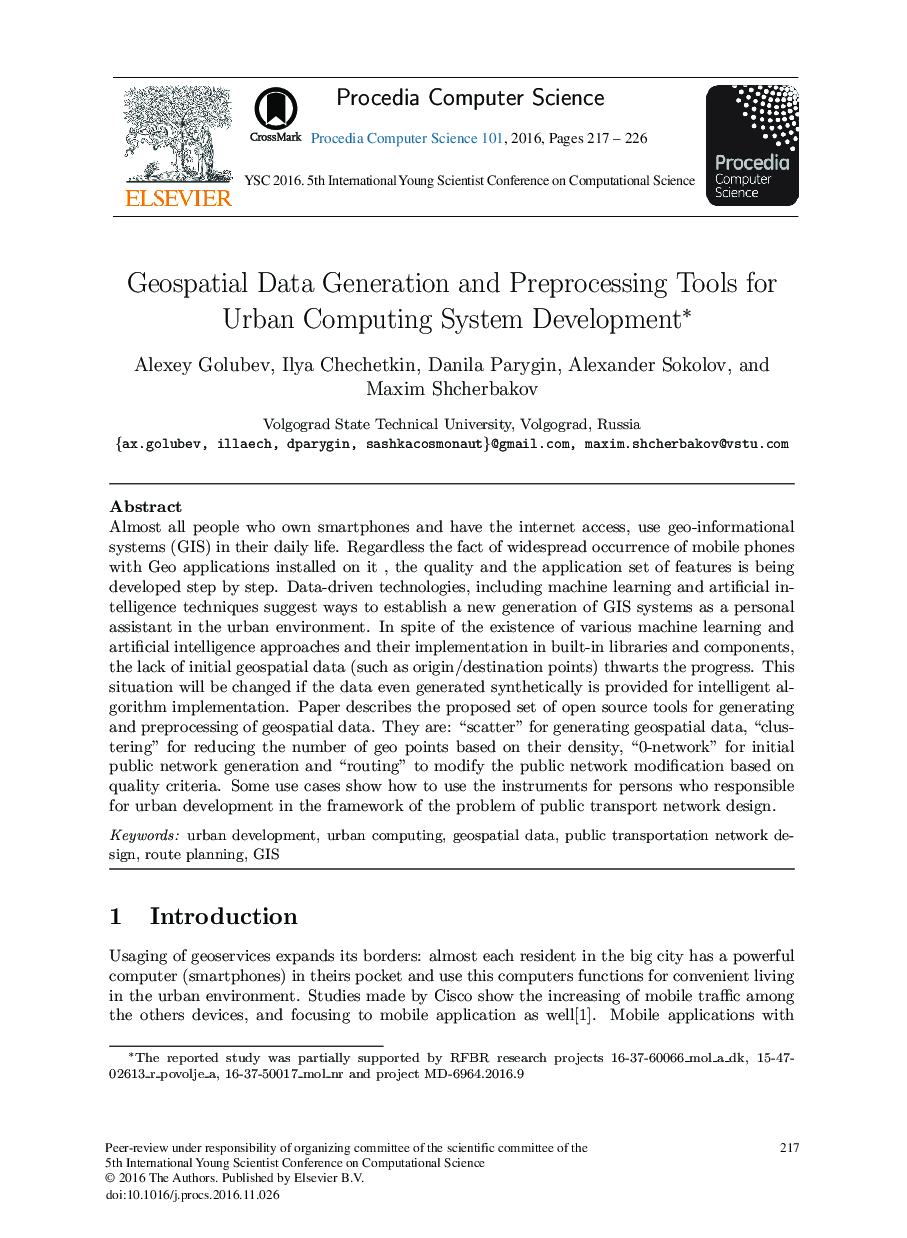| Article ID | Journal | Published Year | Pages | File Type |
|---|---|---|---|---|
| 4961314 | Procedia Computer Science | 2016 | 10 Pages |
Almost all people who own smartphones and have the internet access, use geo-informational systems (GIS) in their daily life. Regardless the fact of widespread occurrence of mobile phones with Geo applications installed on it, the quality and the application set of features is being developed step by step. Data-driven technologies, including machine learning and artificial intelligence techniques suggest ways to establish a new generation of GIS systems as a personal assistant in the urban environment. In spite of the existence of various machine learning and artificial intelligence approaches and their implementation in built-in libraries and components, the lack of initial geospatial data (such as origin/destination points) thwarts the progress. This situation will be changed if the data even generated synthetically is provided for intelligent algorithm implementation. Paper describes the proposed set of open source tools for generating and preprocessing of geospatial data. They are: “scatter” for generating geospatial data, “clustering” for reducing the number of geo points based on their density, “0-network” for initial public network generation and “routing” to modify the public network modification based on quality criteria. Some use cases show how to use the instruments for persons who responsible for urban development in the framework of the problem of public transport network design.
